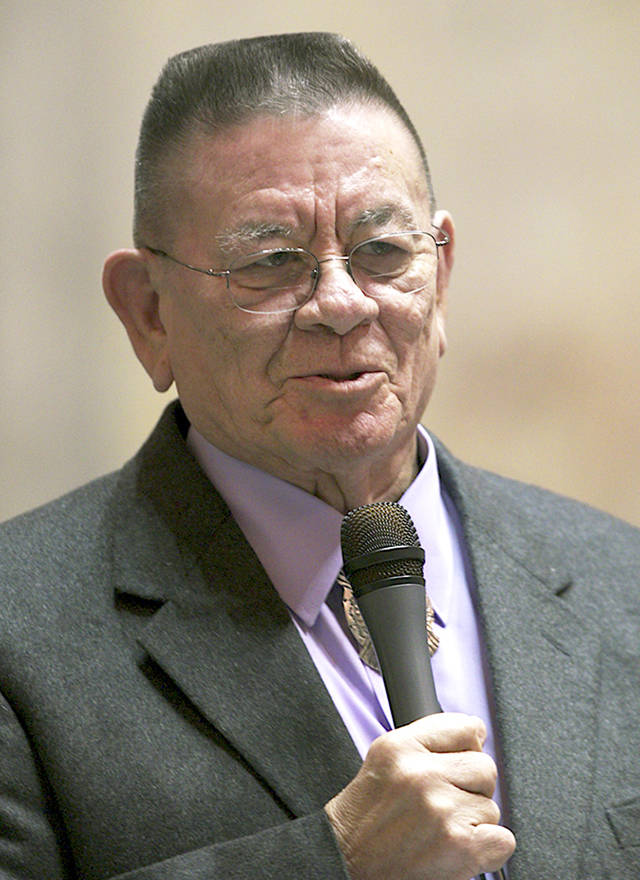By The Herald Editorial Board
Thanks in part to high-profile ballot initiatives, greater interest in congressional races and — maybe — a few more votes cast because postage was paid for Washington state’s mail-in ballots this year, voter turnout for the November general election reached about 72 percent; not a record, but for a non-presidential election not bad when compared to other midterm numbers, such as 2014’s turnout of 54 percent.
Snohomish County’s turnout was slightly lower than the state mark at 70.6 percent, and turnout was higher among its immediate neighbors of Skagit (73.4 percent), King (74.8) and Chelan (75.7). Still, efforts at the county and state level to encourage voter registration and voting may be showing results.
Now there’s need to concentrate on pockets where the voter participation numbers still lag, in particular among the state’s Native American populations and on tribal lands.
The Native American Voting Rights Act, sponsored in the Senate by Sen. John McCoy, D-Tulalip, was heard before the committee on government, tribal relations and elections last week.
The bill, SB 5079 — and its companion, HB 1339 — seeks to improve access for tribal members in the state to register and vote by authorizing tribes to request county election offices provide at least one ballot drop box as well as voter-registration sites; allow tribal members to use non-traditional addresses — those without a street number, such as a P.O. box — when registering to vote; and allow the use of tribal identification for the state’s electronic voter registration system, provided the Secretary of State’s office receives a copy of the applicant’s signature.
The intent, as McCoy described it in a Jan. 20 guest commentary in The Herald, is to avoid the disenfranchisement that occurred last year in North Dakota, after its legislature passed a law that barred the use of P.O. boxes for voter identification, commonly used by tribal members on reservations and other tribal lands that don’t use street addresses.
“Tribes operate in a different way from many,” McCoy wrote. “Our community is relationship-based; those that live on the reservation know all their neighbors. There is no need for a residential address when you already recognize where everyone lives. Indian communities know how the reservation works; it is the outside world that doesn’t.”
Nor has the Snohomish County elections office placed a ballot drop box on Tulalip or other tribal land in the county for recent elections. The nearest one to the Tulalip reservation was one at Marysville City Hall. The need for ballot drop boxes is even greater on some of the state’s larger reservations, such as that of the Yakama Indian Nation, which is home to some 11,000 residents spread out over 1.4 million acres of land.
And while online registration makes that process simple and quick for many in cities, more rural areas — again Tulalip and other reservations — have only spotty access to broadband internet, another subject for which McCoy has advocated.
The result nationwide has meant that voter turnout by Native American populations has lagged behind general numbers by about 14 percentage points, Alex Hur, who represents One America and the Washington Voting Justice Coalition, told the Senate committee on Jan. 23.
The remedies sought in McCoy’s bill aren’t ones that should require much in the way of financial outlay, although we’d like to see the Legislature cough up more money to reimburse county election offices for the operation of all ballot drop boxes, at the same time as they consider making postage-free ballots permanent.
When women won the right to vote in 1910, the Amendment that was adopted specifically kept Native Americans disenfranchised, according to History Link.org. Amendment 6 to the state Constitution read: “That Indians not taxed shall never be allowed the elective franchise.” Even with passage of the federal Indian Citizenship Act of 1924, that language remained in the Washington state Constitution until 1974.
The measures called for in the Native American Voting Rights Act would represent a small apology for allowing those words to fester in our state Constitution for that long.
Talk to us
> Give us your news tips.
> Send us a letter to the editor.
> More Herald contact information.

























